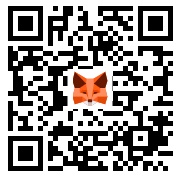Read More《把“共享儿子”做成百亿生意,美国Papa引爆老年陪伴经济》
Positive Reviews: Business Innovation in Emotional Companionship, Reinventing the “Non – medical” Value of Elderly Care Services
Papa’s success is, in essence, a precise insight into the needs of the “silver economy” and a disruptive innovation in its business model. Against the backdrop where traditional elderly care services focus on “rigid needs” such as medical care and daily living assistance, Papa breaks out of this framework and transforms the long – neglected “soft need” of “emotional companionship” into quantifiable and tradable business value, opening up a new track for the elderly care industry.
Firstly, Papa’s core innovation lies in redefining the boundaries of elderly care services. The pain points of the elderly population in the United States are not limited to “physical care” but also include the psychological trauma caused by loneliness. Data from the Pew Research Center shows that over 60% of American seniors need help with daily life, but only 28% of their children provide financial support. This means that the emotional needs of the elderly have long been in a “supply vacuum.” Papa directly hits this pain point through its “non – medical companionship” services (such as transportation, chatting, and joint activities). Although 30% of its services involve transportation, users give a high rating of 4.9 points. The key lies in the emotional connection generated during the “transportation” process. Just like the interaction between user Deborah and caregiver Regina, every trip is an inter – generational dialogue. This “friend – like companionship” is more sticky than simple functional services.
Secondly, the asset – light platform model reduces operating costs and achieves efficient matching of supply and demand. Papa does not directly hire caregivers. Instead, it connects college students (papa pals) with the elderly through the platform and only charges a brokerage fee. This “gig economy” model not only solves the companionship needs of the elderly (a shortage of “people” in elderly care) but also meets the part – time job needs of college students (students lack “money”), forming a two – way driven market ecosystem. Data shows that Papa’s papa pals earn an hourly wage of $13 – 18 (including commuting subsidies), which is significantly attractive to college students. And the cost for the elderly to obtain services through the platform is much lower than that of professional care institutions. This “asset – light + low – threshold” model has enabled it to complete 2.6 million services in 8 years, and the number of members increased by 500% during the pandemic, verifying the rigidity of the demand.
Thirdly, the deep integration with the insurance payment system provides sustainability for the business model. Papa’s profit model not only relies on C – end payments but also, through cooperation with Medicare and commercial insurance, transforms “emotional companionship” into “preventive services” that reduce medical expenses. Data in 2024 shows that the medical expenses of the elderly using Papa’s services are reduced by 9% – 30%, and the hospitalization rate is reduced by 18%. This directly addresses the core concerns of insurance companies – reducing claim costs through preventive services. The quantification and verification of this “medical economic value” have enabled Papa to gain the recognition of both capital and payers. After Series D financing, its valuation reached $1.4 billion, making it a unicorn.
Finally, Papa’s success reflects the integration trend of the “loneliness economy” and the “silver economy.” As global aging intensifies (the elderly population in the United States will reach 80 million by 2040), the consumption needs of the elderly population are shifting from “survival – oriented” to “life – oriented,” and the market potential for emotional companionship is huge. Papa’s case proves that as long as the unmet needs of users can be accurately captured and the supply – demand matching can be achieved through an efficient platform mechanism, the “loneliness business” can grow into a market worth tens of billions of dollars.
Negative Reviews: Potential Challenges in Model Expansion, Standardization, Sustainability, and Cross – cultural Limitations
Although Papa’s business model has prominent highlights, its expansion and replication still face multiple challenges. We need to be vigilant about the boundaries and risks of the commercialization of “emotional companionship.”
Firstly, there are inherent difficulties in service standardization and quality control. The core of Papa is “emotional value,” but emotional needs are highly individualized, and it is difficult to ensure service quality through a unified process. For example, different elderly people have very different needs for companionship – some need someone to listen, while others need to share common interests (such as music or gardening). And the abilities and personalities of papa pals vary. Although Papa has strict screening procedures (only one – third of applicants pass), and nearly half of the papa pals have nursing experience, the label of “non – professional” still exists. In scenarios where psychological counseling or sudden health problems occur, college students may not be able to handle them, leading to service disputes or trust crises.
Secondly, the stability of the labor supply is questionable. Papa relies on college students as part – time caregivers. Although college students have high time flexibility, their mobility is also high. Factors such as graduation, academic pressure, and changes in part – time job choices may lead to the loss of caregivers. Data shows that Papa’s star caregivers need to complete 100 services to get priority in recommendations. Although this can encourage long – term commitment, the natural mobility of the college student group (with an average of 4 years on campus) may still affect service continuity. If the platform cannot establish an effective caregiver retention mechanism (such as a career development path or a sense of community), it may lead to a breakdown in the “user – caregiver” matching and affect the user experience.
Thirdly, the difficulty of cross – cultural replication cannot be ignored. As mentioned in the news, Papa’s model is difficult to directly replicate in China. The core obstacles lie in the differences in the trust mechanism and payment willingness. The United States has a mature social credit system (such as background checks and driver’s license certifications), while Chinese elderly people have a lower level of trust in “strange college students visiting their homes.” They need to rely on traditional carriers such as communities and neighborhood committees to build trust. In addition, Chinese elderly people are less willing to pay for “non – medical companionship” than for medical care, and commercial insurance has limited coverage for emotional services. Papa’s “insurance payment” model may be difficult to implement in China. Even if domestic enterprises try similar models, they need to rebuild the trust chain (such as joint certification by universities and communities) and the payment chain (such as self – payment as the main form and insurance as a supplement), which will increase operating costs and the difficulty of market education.
Finally, the high dependence of the profit model on insurance cooperation implies policy risks. Papa’s growth largely depends on cooperation with Medicare and commercial insurance, and the premise of insurance payment is the quantified data that “emotional companionship reduces medical expenses.” If future research shows that this correlation weakens, or if insurance policies are adjusted (such as a reduction in the claim ratio), Papa’s revenue will be directly affected. In addition, the tightening of regulations in the U.S. elderly care industry (such as the protection of the rights and interests of gig workers) may push up the platform’s compliance costs (such as increasing caregiver benefits and standardizing service standards), squeezing the profit margin.
Suggestions for Entrepreneurs: Breaking the Deadlock in the Domestic Elderly Companionship Economy from the Perspective of the Papa Model
Papa’s success provides important inspiration for domestic entrepreneurs. However, they need to explore differentiated implementation strategies based on local needs and the market environment. The following are specific suggestions:
Focus on the Localized Exploration of “Emotional Needs” and Build a Foundation of Trust
Chinese elderly people’s emotional needs are more dependent on the connections in the “acquaintance society” (such as communities and relatives and friends). Therefore, entrepreneurs can first cooperate with communities, neighborhood committees, and universities to build trust through the method of “community recommendation + university certification.” For example, by joining hands with university volunteer teams, communities can screen the elderly in need of companionship. The platform can provide service process specifications and subsidies, combining the “public welfare attribute” with the “commercial attribute” to lower the trust threshold of users.Differentiated Positioning and Exploration of Composite Services of “Medical + Emotional”
Chinese elderly people are more willing to pay for medical – related services (such as accompanying them to medical appointments and reminding them to take medicine). Entrepreneurs can combine “emotional companionship” with “light medical services” to enhance the service value. For example, training caregivers to master basic health monitoring skills (such as measuring blood pressure and recording medication) can not only meet medical needs but also establish an emotional connection through daily interactions, enhancing user stickiness.Establish a Service Standardization System to Balance Personalization and Replicability
In view of the personalized characteristics of emotional services, precise matching can be achieved through “need tagging + caregiver skill library.” For example, setting “interest tags” (music, travel, parenting) for the elderly and “skill tags” (good at chatting, can do simple gardening) for caregivers. The platform can use algorithms to recommend the most suitable combinations. At the same time, formulating service process specifications (such as prohibiting physical contact and setting topic boundaries) can reduce service risks.Explore Diversified Payment Models to Reduce Users’ Payment Pressure
Since domestic insurance has limited coverage for emotional services, a diversified payment model of “self – payment + public welfare + corporate sponsorship” can be tried. For example, providing paid companionship services for high – net – worth elderly people; for ordinary elderly people, jointly launching a “companionship program” with elderly care institutions and public welfare foundations (with part of the fees subsidized by the institutions); or cooperating with enterprises (such as senior product brands) to share costs through the bundled sales of “services + products.”Pay Attention to the Long – term Retention of Caregivers and Build a Career Development Path
To address the high mobility of part – time caregivers, a “step – by – step incentive” system can be designed: after completing a certain number of services, providing skill training (such as courses in geriatric psychology), priority in order receiving, cash rewards, etc.; or cooperating with universities to include service hours in social practice credits to enhance college students’ sense of participation and belonging.
Conclusion: Papa’s success proves that “emotional companionship” is not only a social issue but also a scalable business opportunity. Domestic entrepreneurs need to base themselves on local needs, take trust as the foundation and service value as the core, and explore a composite model of “emotion + function” to gain an edge in the blue ocean of the elderly companionship economy.
创业时评《把“共享儿子”做成百亿生意,美国Papa引爆老年陪伴经济》
- Startup Commentary”Three post-2005 entrepreneurs are reported to have secured a new financing of 350 million yuan.”
- Startup Commentary”Retired and Reemployed: I Became Everyone’s “Shared Grandma””
- Startup Commentary”YuJian XiaoMian Breaks Issue Price on Listing: Where Lies the Difficulty for Chinese Noodle Restaurants to Break Through in the Market? “
- Startup Commentary”Adjusting Permissions of Doubao Mobile Assistant: AI Phones Are a Flood, but Not a Beast”
- Startup Commentary”Moutai’s Self – rescue and Long – term Concerns”




